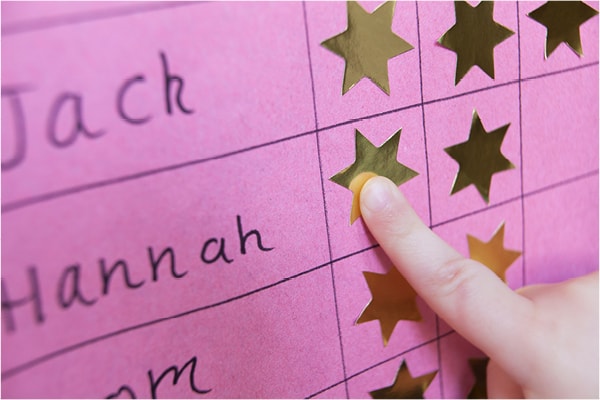Keeping students engaged and on task can be difficult. Can rewards help? Education Week recently wrote on the question of rewards – good or not so good.
Teachers are split on the answer. Some swear by incentives like stickers, a fun activity, or a sweet treat. Others say that learning is its own reward, and students should do what’s expected of them of their own volition.
“This is a really long, ongoing debate,” said Erika Patall, a professor of education and psychology at the University of Southern California. “The answer is not that simple. The bottom line is that rewards are effective for keeping students on task—if that is your sole goal.”
But rewards will not promote a love of learning or have any long-term effects on student behavior, she said: “As soon as rewards are gone, so is students’ engagement.”
Introducing a reward could actually detract from students’ own motivation, she said. Students might feel like the only reason they’re working hard on a task is because they’re trying to get the reward—even if they genuinely enjoy what they’re working on.
When Education Week asked its readers on social media to share the rewards they offer in their classrooms, some shared similar concerns.
Steve Kaczmarek wrote that he rewards his students with “knowledge, and if they pay attention, the ability to compete well.”
“I reward them with an education,” Sandra DeSimone wrote.
Denise Conner wrote that she offers privileges to her middle schoolers instead of rewards.
“The idea of offering ‘items’ or ‘gifts’ is creating the ‘dangling carrot effect,’ which in this day and age is not large enough to create a changed behavior,” she wrote. “A privilege becomes a more intrinsic reward and feels more authentic to changed perception and confidence in doing what is right for the common good of a community.”
But other social media users said they’ve found success in offering rewards to their students. Those rewards range from small trinkets to games and breaks.
Amanda Be said she hands out stamps and stickers: “My high school seniors LOVE them!”
Christy Riester wrote that kids in her class could earn a Fun Friday: “Kid-led Kahoots, and I bring in cookies. If nice weather, we go outside and walk (kids love walking and talking); play games.”
Shannon Steyer shared a list of rewards she offered in her classroom: “Tickets for treasure box, punch cards, treats, free time on Friday, whole-class compliment.”
Lozetta Hayden, a 6th grade teacher at Gunning Bedford Middle School in New Castle, Del., has created an elaborate class economy that she says rewards good behavior and hard work while also teaching math skills and empowering students.
She prints Hayden dollars, which students earn based on the effort they put into their school work as well as their classroom behavior.
“Students below grade level have an equal chance to earn money as students at or above grade level,” said Hayden.
Then, they can spend the money in her class store which has everything from extra pencils or sugarless gum to big-ticket items, like Amazon Fire tablets or a bicycle
The classroom economy is also a “great equalizer,” Hayden said. If a parent can’t afford to buy school supplies, students can pay for their own with Hayden bucks. Hayden will accept the class money to cover a portion of a field trip, if a parent can’t pay the full cost. (The rest comes from the school’s budget, donations, or Hayden’s own wallet.)
“It gives kids ownership,” she said. “It gives them more ability to control what they want to control. They feel more empowered.”
There are posted fines in the classroom. For example, Hayden fines students 500 Hayden bucks for every curse word they use. It teaches them responsibility, she said.
“It really helps with them being able to make that connection to money that they don’t have in real life because everything is so digital,” she said.
Education Week






